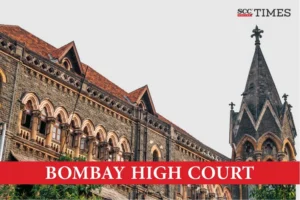Bombay High Court: In a petition filed under Section 11 of the Arbitration and Conciliation Act, 1996 (‘the Act’) seeking reference of the disputes that had arisen between the parties regarding an agreement dated 19-02-2007 (‘the agreement’) and a deed dated 14-08-2015 which cancelled the agreement (‘cancellation deed’) to an Arbitration Tribunal, a Single Judge Bench of Somasekhar Sundaresan, J., allowed the petition holding that the agreements existed despite not being executed by a validly authorised person.
Background
There was a formal agreement between the parties, namely, the main agreement and the cancellation deed. Both of these instruments had an arbitration agreement inherent in it, which required that disputes between the parties in connection with construction or interpretation of such instrument were to be referred to a sole arbitrator.
Analysis
The Court rejected the contention that the dispute regarding existence of an agreement could not even be referred to an Arbitral Tribunal, unless the arbitration clause expressly empowered the Tribunal to do so. The Court stated that the jurisdiction to adjudicate disputes relating to construction or interpretation of an agreement would necessarily bring within its ambit, any dispute about existence of the agreement.
Additionally, as a matter of statute, the Court stated that Section 16 of the Act made it clear that the scope of power of the Arbitral Tribunal was indeed extremely wide and expansive. Under Section 16(1) of the Act, the Arbitral Tribunal could rule on its own jurisdiction and in doing so, it might also rule on any objections with respect to the existence or validity of the arbitration agreement. The Court added that the arbitration clause in a contract was treated as an independent agreement that was distinct from the other terms of the contract. Thus, a decision that the contract containing the arbitration clause was void would not entail the legal outcome that the arbitration clause was invalid.
The Court reiterated that the referral Court under Section 11 of the Act ought to restrict its scrutiny in the course of such proceedings solely to the existence of an arbitration agreement. In this regard, the Court relied on the Supreme Court judgment of Interplay Between Arbitration Agreements under A&C Act, 1996 & Stamp Act, 1899, In re, (2024) 6 SCC 1.
The Court rejected the contention that Section 19(2)(a) of the Partnership Act, 1932, undermined the existence of an arbitration agreement, for the purpose of this Court’s review under Section 11 of the Act. The Court stated that it was apparent from the plain reading of Section 19(2)(a) that what was envisaged was that one had to examine whether there was no custom or usage of a trade contrary to the submission of a dispute relating to the business of a partnership firm to arbitration. If it was concluded that there was no custom or usage of trade for a partner to submit disputes to arbitration, then an express authority would be required to submit disputes to arbitration. The Court added that all of this would be irrelevant unless it was found that the execution of any contract containing an arbitration clause constitutes “submitting a dispute to arbitration”.
The Court stated that prima facie, it was apparent that ‘submission of a dispute’ regarding the business of the firm to arbitration would necessarily entail the existence of a dispute. This was the action of submitting a dispute to arbitration that, that was covered by Section 19(2)(a). The Court added that a dispute that had arisen could be submitted to arbitration only when there was a right to submit it to arbitration. Such a right could come into existence only when there was an agreement containing an arbitration clause. When there existed a right to submit a dispute to arbitration by reason of an arbitration clause, the action of actually submitting a dispute to arbitration, could perhaps not be done without express authority (that too would depend on custom and usage of trade).
The Court said that even if it was presumed that signing an agreement with an arbitration clause could be regarded as submission of a (non-existent) dispute to arbitration, it would not follow that as a matter of law, since there would be no implied authority to execute such a contract. The Court stated that the only accurate position of law was that all these were issues that would pose mixed questions of fact and law and would relate to the substance of existence rather than the form of existence, i.e., a written agreement. The only forum for determination of the substance of existence, in the scheme of the Act, was the Arbitral Tribunal.
The Court stated that it was the decision to actually ‘submit’ an actual ‘dispute’ that had arisen in the course of business, prima facie, would attract the jurisdiction of Section 19(2)(a). The Court explained that Section 19(2)(a) appeared to protect the partnership firm from being subjected to arbitration proceedings by a partner without consulting other partners.
Thus, the Court held that the agreement did exist and allowed the petition. Holding this, the Court appointed Justice Akil Kureshi, former judge of this Court and former Chief Justice of Rajasthan and Tripura as the sole arbitrator and gave several directions to be followed by the parties and the arbitrator.
[Shreegopal Barasia v. Creative Homes, 2025 SCC OnLine Bom 42, decided on 06-01-2025]
Advocates who appeared in this case :
For the petitioner: Mayur Khandeparkar, Nishant Tripathi, and Pranav Vaidya i/b M. Tripathi & Co.
For the respondent: Rohaan Cama, Abhishek Adke, Mikhail Behl, Rupesh Geete, and Priya Danagt i/b Satyaki Law Associates


